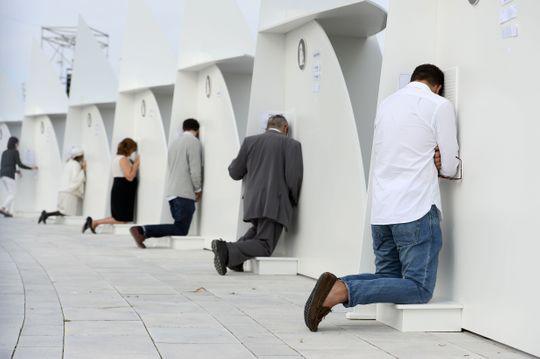|
California bill targets Catholic priests first, but rights of all religions are at risk
By Pius Pietrzyk
The Bill of Rights is supposed to protect people from having to choose between the most sacrosanct part of their religious beliefs and imprisonment. California is considering a proposed law that is nothing less than an attempt to jail innocent priests. California Senate Bill 360 seeks to change its law to force a priest, when he hears of sins in the confessional regarding sexual abuse, to make a choice. He must choose to either maintain the confidentiality of the sacrament and face possible imprisonment or to betray that confidentiality and violate his deepest conscience and the laws of God and the Roman Catholic Church. No priest I know would choose the latter. In 1813, the New York Court of General Sessions commented on the Catholic sacrament of confession and the government’s proper role in respecting the secrecy of the confessional as a part of its constitutional duty to protect religious freedom. It said: “To decide that the minister shall promulgate what he receives in confession, is to declare that there shall be no penance; and this important branch of the Roman Catholic religion would be thus annihilated.” If this bill is passed into law, California will commit precisely such an annihilation. A privacy fundamental to CatholicismIt is essential to understand what the sacrament of penance means in the Catholic Church. In this time of Easter, Christians celebrate the resurrection of Our Lord Jesus Christ and the redemption of our sins. The saving power of the cross is available to the people of God especially through the sacraments, those material symbols that give way to spiritual goods. After baptism we still turn away from God through sin. To turn back to him is impossible for man to accomplish alone, he needs the grace of Christ, which is given especially in the forgiveness offered in the sacrament of penance, or confession. Although the priest acts as an instrument, confession is fundamentally about the encounter of the penitent Christian with God; he admits his sins to God and through the priest receives God’s absolution. It is a privileged moment in which a person reveals the deepest part of his conscience to God. As the U.S. Supreme Court said in 1980: “The priest-penitent privilege recognizes the human need to disclose to a spiritual counselor, in total and absolute confidence, what are believed to be flawed acts or thoughts and to receive priestly consolation and guidance in return.” The Catholic Church holds that the information received by the priest in confession does not belong to him. It belongs to God alone. For that reason, a priest is absolutely — meaning there are no exceptions — forbidden from revealing the sins of a penitent. In fact, a priest who would dare do such a thing commits a grave mortal sin and is subject to excommunication by the Roman Catholic Church, which only the pope may lift. There is a “seal” around the confession that may never be broken by any human authority. That legal basis for that seal goes back at least as far as the tenth century, when individual confession became more common. The Catholic Church teaches that the seal is not simply human law but is divinely revealed and established. Such a moment is fundamental to the Catholic identity and is a core part of the practice and belief of Catholics, centuries before the United States came into being. For that reason, the courts and legislatures in the United States have almost universally upheld a “priest-penitent” privilege, akin to the attorney-client privilege. Although not directly taken up by the U.S. Supreme Court, the privilege is also rooted in the constitutional imperative not to prohibit the free exercise of religion. If this bill passes, no religion is safeI know priests all along the theological and ideological spectra, none of them would ever consider breaking the seal of the confessional. The state of California wants no less than to force a priest to choose between imprisonment and turning away from God and his Roman Catholic Church. The purpose of mandatory reporting statutes, like the existing one in California, is good. The core function of government is to protect the most vulnerable, especially children. It is to my great shame that in the past the Roman Catholic Church in the United States did not always follow her own teachings on the matter of protecting children. But there is no evidence that forcing priests to disclose cases of abuse learned of in the confessional would have prevented a single case of child abuse. There is every reason to believe the elimination of the privilege would mean that perpetrators would simply not bring it to confession. If a core principal as deeply ingrained in Catholic tradition and doctrine can be wiped away this easily by the state, no fundamental rights of religion or conscience are safe. All Americans — not just Catholics — should be alarmed by what the California legislature is contemplating. To force individuals to choose between the most sacrosanct part of their religious beliefs and imprisonment is what the Bill of Rights was entirely meant to avoid, as the New York courts wisely held almost two centuries ago. I pray that a similar wisdom is found in a sufficient number of members of the California legislature.
|
.
Any original material on these pages is copyright © BishopAccountability.org 2004. Reproduce freely with attribution.
